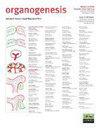Variations in Aspects of Neural Precursor Cell Neurogenesis in a Human Model of HSV-1 Infection
IF 2.8
4区 生物学
Q4 BIOCHEMISTRY & MOLECULAR BIOLOGY
引用次数: 2
Abstract
ABSTRACT Encephalitis, the most significant of the central nervous system (CNS) diseases caused by Herpes simplex virus 1 (HSV-1), may have long-term sequelae in survivors treated with acyclovir, the cause of which is unclear. HSV-1 exhibits a tropism toward neurogenic niches in CNS enriched with neural precursor cells (NPCs), which play a pivotal role in neurogenesis. NPCs are susceptible to HSV-1. There is a paucity of information regarding the influence of HSV-1 on neurogenesis in humans. We investigated HSV-1 infection of NPCs from two individuals. Our results show (i) HSV-1 impairs, to different extents, the proliferation, self-renewing, and, to an even greater extent, migration of NPCs from these two subjects; (ii) The protective effect of the gold-standard antiherpetic drug acyclovir (ACV) varies with viral dose and is incomplete. It is also subject to differences in terms of efficacy of the NPCs derived from these two individuals. These results suggest that the effects of HSV-1 may have on aspects of NPC neurogenesis may vary among individuals, even in the presence of acyclovir, and this may contribute to the heterogeneity of cognitive sequelae across encephalitis survivors. Further analysis of NPC cell lines from a larger number of individuals is warranted.1型单纯疱疹病毒感染人模型中神经前体细胞神经发生方面的变化
脑炎是由单纯疱疹病毒1型(HSV-1)引起的最重要的中枢神经系统(CNS)疾病,在接受阿昔洛韦治疗的幸存者中可能有长期后遗症,其原因尚不清楚。HSV-1在神经发生中起关键作用的神经前体细胞(neural precursor cells, npc)富集的中枢神经系统中表现出向神经发生龛的倾向。npc易感染HSV-1。关于1型单纯疱疹病毒对人类神经发生的影响的信息缺乏。我们调查了2例npc的HSV-1感染情况。结果表明:(1)HSV-1在不同程度上抑制了这两种个体的npc的增殖、自我更新,并在更大程度上抑制了它们的迁移;(二)金标准抗疱疹药物阿昔洛韦(ACV)的保护作用因病毒剂量而异,而且是不完全的。这也取决于这两个个体衍生的npc的功效差异。这些结果表明,即使在无环鸟苷存在的情况下,HSV-1对NPC神经发生的影响可能在个体之间有所不同,这可能导致脑炎幸存者认知后遗症的异质性。进一步分析来自更多个体的鼻咽癌细胞系是有必要的。
本文章由计算机程序翻译,如有差异,请以英文原文为准。
求助全文
约1分钟内获得全文
求助全文
来源期刊

Organogenesis
BIOCHEMISTRY & MOLECULAR BIOLOGY-DEVELOPMENTAL BIOLOGY
CiteScore
4.10
自引率
4.30%
发文量
6
审稿时长
>12 weeks
期刊介绍:
Organogenesis is a peer-reviewed journal, available in print and online, that publishes significant advances on all aspects of organ development. The journal covers organogenesis in all multi-cellular organisms and also includes research into tissue engineering, artificial organs and organ substitutes.
The overriding criteria for publication in Organogenesis are originality, scientific merit and general interest. The audience of the journal consists primarily of researchers and advanced students of anatomy, developmental biology and tissue engineering.
The emphasis of the journal is on experimental papers (full-length and brief communications), but it will also publish reviews, hypotheses and commentaries. The Editors encourage the submission of addenda, which are essentially auto-commentaries on significant research recently published elsewhere with additional insights, new interpretations or speculations on a relevant topic. If you have interesting data or an original hypothesis about organ development or artificial organs, please send a pre-submission inquiry to the Editor-in-Chief. You will normally receive a reply within days. All manuscripts will be subjected to peer review, and accepted manuscripts will be posted to the electronic site of the journal immediately and will appear in print at the earliest opportunity thereafter.
 求助内容:
求助内容: 应助结果提醒方式:
应助结果提醒方式:


